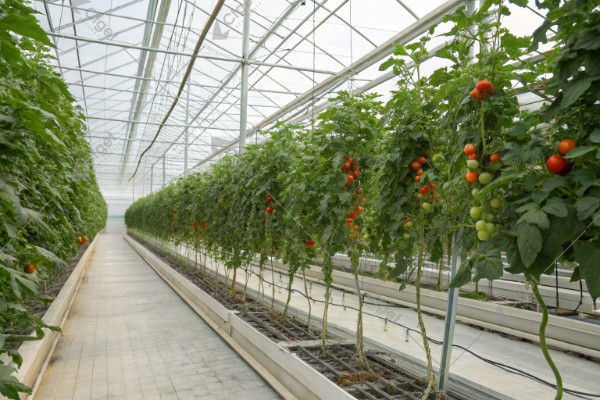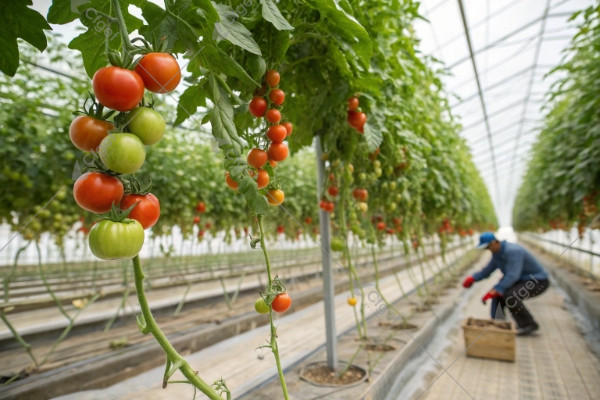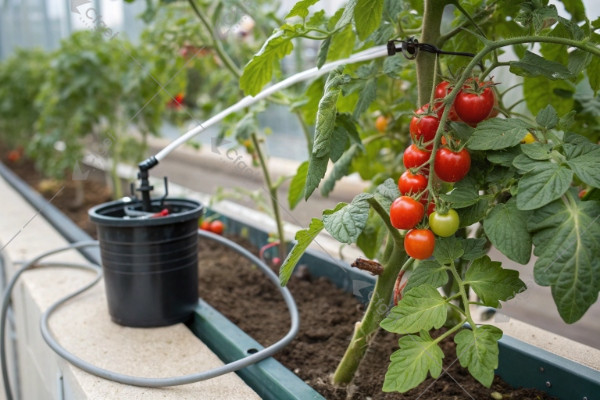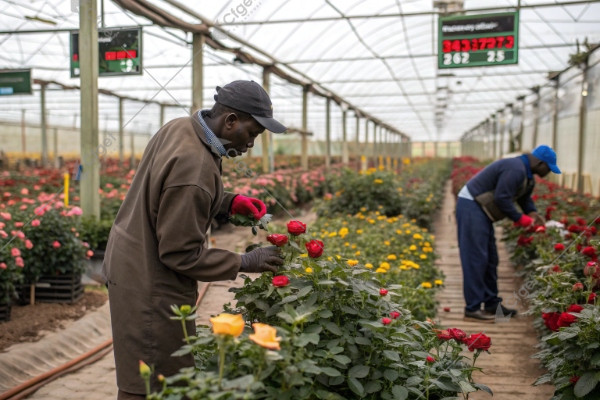Feeling the frustration of limited growing seasons? Wondering how to have fresh produce all year, despite harsh winters? Many face this, especially in colder climates.
Chinese greenhouses use solar energy very efficiently. They have smart designs, good insulation, and clever heat storage. This makes it possible to grow crops all year, even in cold places, without using a lot of extra energy.
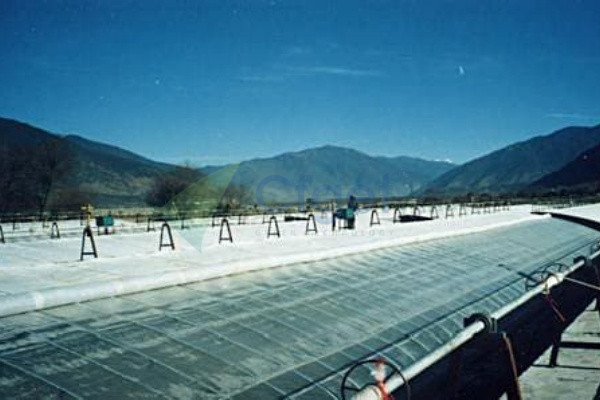
Let’s explore how these greenhouses work. We will look at the details of their design, construction, and function, so you can understand this sustainable way of farming.
Solar Energy Capture: Orientation and Angle of Chinese Greenhouses?
Struggling to keep your greenhouse warm enough in winter? Wishing you could get more sunlight into your growing space? It’s a common concern for a lot of growers.
Chinese greenhouses are carefully positioned to face south. The back wall is angled to catch the most sunlight during the day. This simple but smart design greatly increases how much solar energy is collected.
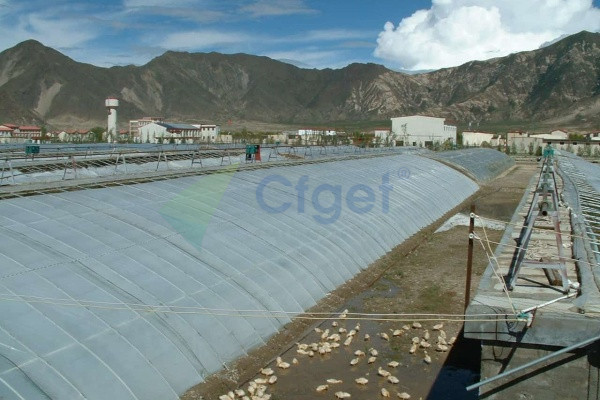
The specific angle and orientation are very important. These elements depend on the location’s latitude. Let’s think about how latitude changes the sun’s path across the sky.
| Latitude Range | Sun’s Angle in Winter | Greenhouse Design Considerations |
|---|---|---|
| High Latitude | Low | Steeper back wall angle; Emphasis on insulation |
| Mid Latitude | Moderate | Moderate back wall angle; Balance of light & heat |
| Low Latitude | High | Flatter back wall angle; Focus on ventilation |
My experience with CFGET shows this. We mostly work with small farms in places like Xinjiang, Tibet, and parts of Sichuan. These areas have very long, cold winters. Our greenhouses are usually about 60 meters long. We see families using one or two of these greenhouses. They can earn around 100,000 to 150,000 yuan per year. They grow things like bell peppers, peppers, and tomatoes. By maximizing the sun that is available, the growers get a longer season.
Heat Storage: The Role of Walls and Ground?
Worried about heat loss at night in your greenhouse? Feeling like all the daytime warmth just disappears? It’s a common frustration, wasting energy and money.
The thick walls of Chinese greenhouses store heat. They are often made of materials like earth or brick. The ground inside the greenhouse also absorbs heat during the day, releasing it at night.
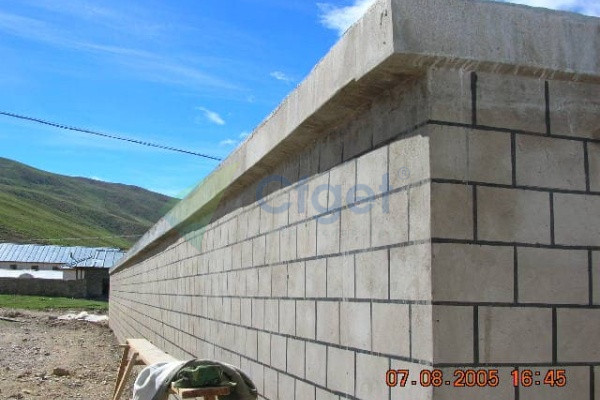
The materials are very, very important. Think of it like this. You have different pots and pans in your kitchen.
| Material | Heat Storage Capacity | Insulation Properties | Best Use Case |
|---|---|---|---|
| Earth/Soil | High | Moderate | Walls, ground; low-cost, readily available |
| Brick | Moderate | Good | Walls; durable, good structural properties |
| Concrete | High | Moderate | Walls, foundations; strong, long-lasting |
| Water (Tanks) | Very High | Low | Supplemental heat storage; needs containment |
From my personal experience in Sichuan, most growers we work with use soil for their greenhouse walls. This is very practical. The materials are easily found. It’s also affordable. These materials help store the heat to keep crops warm at night. It is important to extend the growing season.
Nighttime Insulation: Insulation Materials and Measures?
Do you find your greenhouse getting too cold at night? Are you spending a lot on heating to keep plants from freezing? This is a big worry for any grower.
Chinese greenhouses use insulating materials at night. These are often rolled over the transparent covering. This helps trap the heat that was collected during the day, keeping the inside warm.
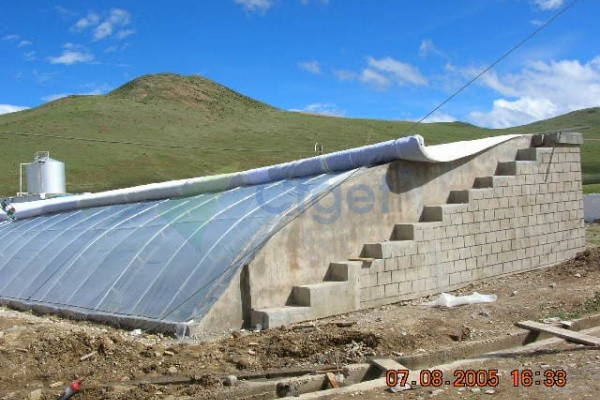
Different materials have different benefits. It is like choosing the right blanket for your bed.
| Material | Insulation Value (R-value) | Cost | Durability | Other Notes |
|---|---|---|---|---|
| Straw Mats | Moderate | Low | Moderate | Traditional, readily available; may need replacement |
| Quilt | High | Moderate | high | made of cotton,Durable |
| Foam Sheets | High | Moderate | High | Lightweight, effective; can be bulky |
| Bubble Wrap | Moderate | Low-Moderate | Moderate | Easy to install; good for short-term use |
| Reflective Foil | Low (but reflects heat) | Low-Moderate | Moderate | Best used in combination with other insulation |
We have worked with many growers over our 28 years at CFGET. We’ve found many use straw mats, now is quilt. It’s a balance. It is cheap, and it does a good job. In colder areas, some growers use multiple layers. Or they might use foam sheets for extra protection. It always depends on the exact location, and what is being grown.
Temperature Control: Ventilation and Shading?
Do you have problems with your greenhouse getting too hot during the day? Are your plants wilting or getting stressed from too much heat? It is hard, to control temperature well.
Chinese greenhouses use vents and shading to control the temperature. Vents let out hot air. Shade cloths can be used to reduce the amount of sunlight entering the greenhouse when it’s too intense.
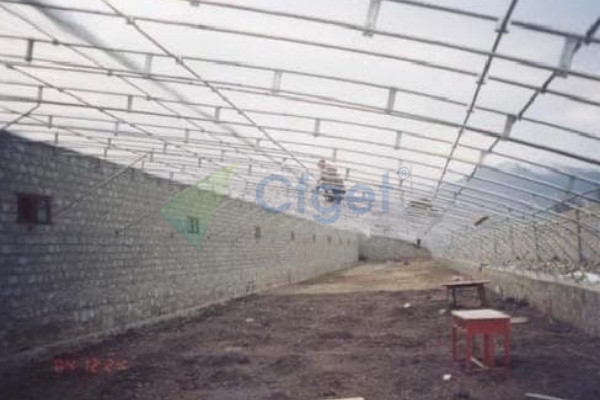
Think of it like opening a window in your house, or pulling down a blind. It is controlling the amount of heat and light.
| Method | How it Works | When to Use | Effectiveness |
|---|---|---|---|
| Ventilation | Allows hot air to escape, cool air to enter | When inside temperature is too high | High |
| Shading (Cloth) | Reduces sunlight entering the greenhouse | During peak sun hours, on very hot days | Moderate-High |
| Evaporative Cooling | Adds moisture to the air, lowering temp | In dry climates, when humidity is low | High |
Most of the growers we work with in China, mainly use ventilation and shading. It is very, very important. It helps keep plants healthy, and growing well. In the hottest parts of the day, they might roll down shade cloths. They will open vents at the top and sides of the greenhouse. This lets the hot air escape. I always tell people. It’s like adjusting the temperature in your own home!
Conclusion
Chinese greenhouses are a smart way to use solar energy. This allows for growing crops year-round. It is efficient. It is sustainable. They use smart design, good insulation, and clever heat storage. These simple methods can make a big difference, especially in cold climates.

